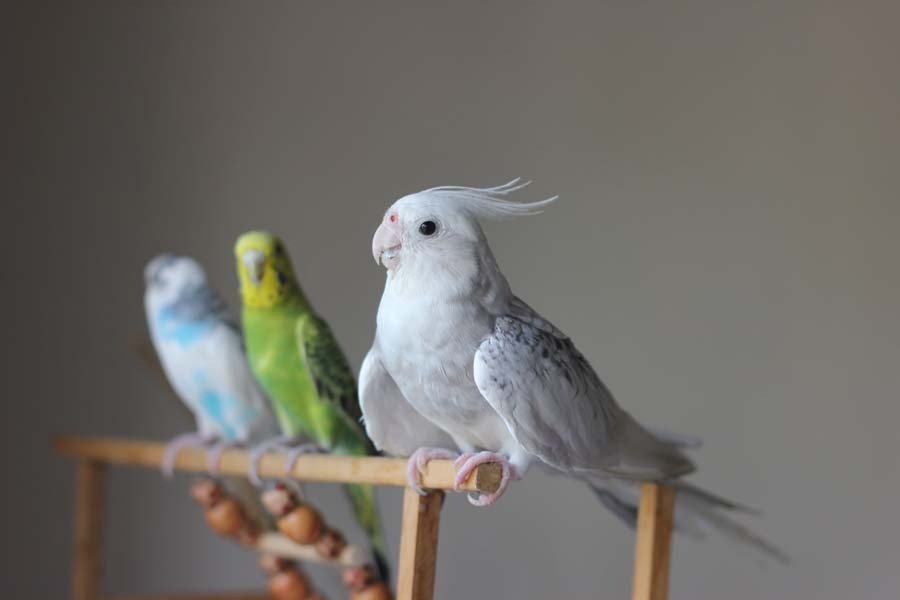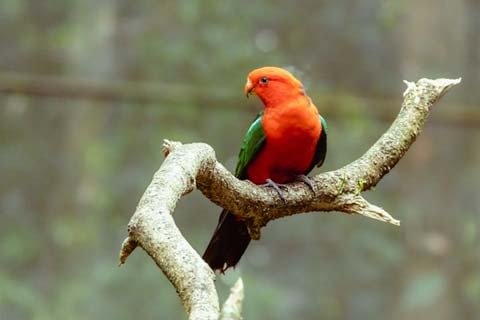A Turramurra Vet Pet Care Article
Importance of Enrichment in Household Birds

Exotics Corner – Importance of Enrichment in Household Birds
by Freya Britt-Lewis, Pet Health Care Writer
In a 2019 survey by Animal Medicines Australia ‘Pets in Australia – a national survey of pets and people’, there was an estimated population of 5.6 million pet birds living in this beautiful country! Birds make fabulous pets and invaluable family members.

It is important that birds are able to exhibit natural behaviours, as this lessens stress.
Common indicators of stress and boredom in pet birds can include:
- Feather picking
- Open beak breathing
- Fearful or aggressive behaviours
- Trembling
- Excessive vocalisation and screaming
An important part of owning pet birds is to mimic their natural environment as much as possible. This avoids negative social, behavioural, or psychological issues. Environmental enrichment should allow your bird to express some of their natural behaviours through foraging, investigation of new items, social interaction, exercise opportunities and mental stimulation, such as puzzle games.
Types of Enrichment
Foraging
Foraging is the act of searching for food. In the wild, the majority of a bird’s time is spent foraging. Toys are commonly sold at pet stores, however, economical options are available.
- Use household items like newspaper, cardboard packaging and toilet rolls to create homemade toys. Fill them with treats and let your bird peck, shred and tear into the toy!
- Give items to simulate foraging by hiding treats in grass or adding items to shred such as paper or cardboard.
Exercise
Birds need exercise. This includes moving, climbing and flying. A happy pet bird will have the space to move between perches, climb their cage in search of food or toys, and have time allocated daily to stretch their wings and fly. Remember that cage width is more important than height, because birds do not fly up and down like a helicopter!
- Use treats tied to the top of the cage and walls to make your bird climb for their food and challenge them physically.
- Include swing perches and other toys that create movement.
- Provide out of enclosure time in a safe environment. Allow your bird time to fly and explore daily.
- Provide natural perches of varying sizes, textures (avoid rough surfaces like sandpaper), and diameters to replicate natural perches and promote foot health.
- Perch size should be sufficient to allow the foot to sit on top of it, only partially wrapping around it to prevent curling of the foot, to promote foot health.
Mental stimulation
Birds are clever animals. Like other domestic pets such as dogs and cats, they also require mental stimulation to remain healthy.
- Rotate the items in your bird cage weekly.
- Include new toys, perches, puzzles and opportunities to explore.
- Use food dispensers to make your bird think and work for food.
- Add safe elements from the natural environment such as perches or leaves.
- Ensure your bird has a proper day/night cycle.
Diet
Providing a well-balanced diet is important for a healthy, enriched bird. Supermarket bought seed mixes are not a balanced diet. Include a mixture of pellets or crumble, and a selection of fresh vegetables daily. Small amounts of dry seed mixes can be offered every now and then as a treat.

Keeping a pet bird healthy is not as simple as providing a few toys and treats. They require a mixture of physical and mental enrichment in order to live a fulfilling life. Introducing your bird to new enrichment opportunities should be done gradually so as not to overwhelm or scare them.
If you would like further guidance, or are concerned for your bird, phone us on 9988 0198 to book a veterinary consultation.

